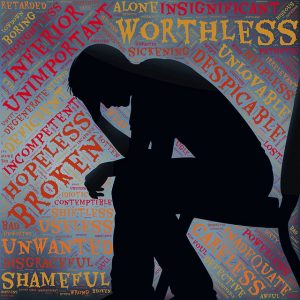 Three suicides. Three sad losses.
Three suicides. Three sad losses.
My neighbor’s family quietly removed furniture and posted a “for sale” on her lawn. People averted their eyes. Few spoke of the reason for her death. Despite the discomfort, there was a palpable sadness in our community. A couple of weeks later, tweets, articles and interviews poured out of the news and social media regarding the deaths of Kate Spade and Anthony Bourdain. Sadness was evident for these suicides as well. Tenderness and compassion lept off pages and social media for these two beloved stars. With the outpouring, I wondered why these deaths occurred, why suicide rates were up and why so few knew of their illness. I wasn’t blaming those around them, I was simply curious, do we truly understand and know how to help those with mental illness?
Interesting since many of us suffer.
According to the National Alliance on Mental Illness, “1 in 5 adults in America -43.8 million, or 18.5%- experience mental illness in a given year.”Suicide is the 3rd leading cause of death for people aged 10–14 and the 2nd leading cause of death for people aged 15–24.”
Quietly battling
With these stats in mind, I read an article in People Magazine addressing the suicides of the two celebrities. The author eloquently highlighted that Kate’s successful life could not save her, “But none of it, in the end, had any power to overcome the disease Kate quietly battled.” I read the sentence again. Then said aloud, “Kate quietly battled.” I read the sentence a third time and wrote on a blue sticky note the word that kept jumping off the page, “quietly”. What motivated Kate to quietly battle her disease? What is the implication when the public is surprised successful people are capable of committing suicide? Why, in both cases, did friends and family say they never expected their loved one to do “this”. “This”, of course, referring to suicide. And why, in almost every article and news piece, were the suicides explained with the phrase, they were fighting demons?
Do I really have Demons?
The language we use -or don’t use- as a society can directly impact what diseases we champion. Could language be a reason we don’t understand mental illness? Could it provide us with an insight as to why so many don’t view mental illness as a “real” disease? We’ve all heard the common characterizations of those suffering as crazy, weak or attention seekers. Much of the reporting on the suicides explained away the “choice” by reflections such as, “They battled demon’s their entire life.” The image of a demon is dramatic and can provide someone who has never experienced mental illness a powerful visual. I would also suggest it also quietly insinuates mental health is not a disease. Instead of examining the cause or consider mental illness as just that, an illness, we call it a choice and blame evil to justify the outcome. But if we imagine a father claiming his child battled demons which resulted in a burst appendix, we would seriously question his parenting ability.
A Dream for Public Support
Patrick Kennedy said it best when he humorously pondered, I wonder when doctors decided the head was not part of the body. The way we view mental illness is antiquated and woefully inadequate. My hope is to witness a shift in society where we support those who suffer like the amazing breast cancer campaign has modeled.
When one witnesses the sea of pink walkers, *joyfully connected,*raising awareness and funding, *supporting their loved ones, *honoring those who have died and *cheering on those in remission, you can’t help but smile and have hope.
It defines compassion and love.
But when you blame someone for their illness, believe success solves depression or addiction, use demon as a cause or cannot even say the word suicide, how does our society rally behind helping those with mental illness? It blames the individual’s character often stopping him or her from seeking help. It promotes SHAME and STIGMA resulting in one “quietly battling” their disease.
 The words we use are powerful. While we honor those who have died, how are we treating the living?
The words we use are powerful. While we honor those who have died, how are we treating the living?
How to Help!
- Are you thinking about suicide? If you suspect someone is thinking about suicide, ask them! We fear in bringing it up, it is suggestive or harmful. According to Nancy Lublin, CrisisTextLine.org, a text hotline for our youth to reach out to crisis counselors, the best thing you can do is ask. It makes them feel seen and provides an opening for them to talk about their pain.
- Learn, Learn, Learn! Educate yourself on the mental illness your loved one is facing. Education can provide you with specific tips on how to speak to your loved one, offer support and care for yourself, teach what to do if they refuse help and offer how to best support your loved one.
- Get honest. How do you speak about mental illness? What is the language you use?
- Get Involved! Please visit The National Alliance on Mental Illness on how you can get involved on issues such as raising awareness, increasing research funding and attaining mental health parity.
If you or someone you know is struggling or in crisis, you are not alone!!
visit, preventionlifeline.org,
call the National Suicide Prevention Lifeline at 1-800-273-TALK (8255)
the International Association for Suicide Prevention’s website.

